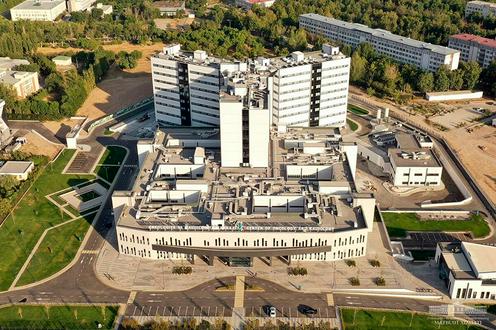President of Uzbekistan Shavkat Mirziyoyev has instructed that foreign managers be brought in to lead five national specialized medical centers or, alternatively, that their management be transferred to reputable foreign clinics, the presidential press service reported.
At a September 19 briefing on measures to further improve the health care system, Mirziyoyev emphasized the need to enhance specialized medical care. Although dozens of scientific and practical centers in the country are equipped with modern technology and receive significant state funding, the population continues to complain about poor service quality and long waiting times. Specialized centers are said to be slow in adopting treatment standards, while their methodological work at the primary care level remains weak.
In this context, it was proposed to completely review the activities of all national specialized clinics. As a successful example, the Republican Center of Oncology and Radiology was cited, where Turkish specialists are already working. On September 19, the Ministry of Health announced that Turkish expert Sedat Kaya, who previously held senior positions in medical institutions in Turkey, including a university hospital and the Union of State Hospitals of Sakarya Province, had been appointed director of the center.
The involvement of foreign management in clinics is expected to help develop treatment and diagnostic standards based on international experience, create national clinical protocols, introduce new technologies, design long-term development strategies, attract highly qualified specialists, and establish a transparent health care system.
At the same time, Uzbekistan is revising its clinical treatment protocols. Four hundred documents have already been updated, with another four hundred scheduled for review by the end of the year. With support from the Asian Development Bank (ADB), a methodology is being developed to set tariffs for more than three thousand medical services.
A new model of primary health care, based on international experience, is also being introduced. It aims to bring medicine closer to the population through the development of multipurpose central polyclinics, family doctor units, and neighborhood medical posts within a unified framework. As a result, the share of family doctors in health care is expected to reach 70 percent.
Digitalization and a reduction in paperwork are projected to lower the workload of medical staff by nearly one-third. Authorities plan to raise citizens’ satisfaction with primary care services to 85 percent. A new system of material incentives, directly linked to medical staff performance, will also be introduced.
The meeting additionally discussed measures to safeguard children’s health. The government of Uzbekistan will adopt a national program to support breastfeeding, with the goal of meeting the World Health Organization’s (WHO) target: by 2030, 70 percent of infants under six months should be exclusively breastfed. The program will also include other WHO and UNICEF initiatives, training for health workers, and outreach for pregnant and nursing mothers. In addition, it was proposed to legally restrict advertising of breast milk substitutes and tighten regulations on the production, distribution, and sale of baby food.










